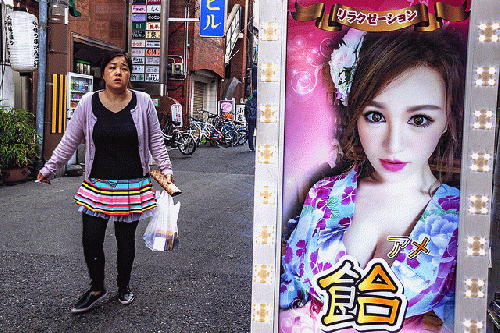Before my recent trip to Tokyo, Kawasaki and Osaka, I emailed an American friend, "Japan contrasts so sharply with chaotic and dirty Vietnam. Unlike here, almost nothing happens on Japanese sidewalks, no eating, drinking or even smoking!"
He replied, "Myself, I would prefer 'dirty' Vietnam to Japan, any day." Though only in Vietnam as a soldier, he still has fond memories of the country.
On the way to Tan Son Nhat Airport, the young taxi driver asked where I was flying to.
"Tokyo, I answered. "It's my second time. They have a great subway system, brother," and it is the most reliable, cleanest, safest and easiest I've ever used, with great amenities at most stations. "Who knows when Vietnam will have something similar?"
From Narita, I took three trains to Nippori, Hamamatsucho then Azabujyuban, from where I walked to my room at International House. On the way, I passed the Juban Inari Shrine. All Japanese temples are elegant and understated, even when huge. Crossing the street was suddenly no longer an adventure. Though Vietnamese have become much better at stopping at red lights, many still bristle at the idea.
Japanese do occasionally jaywalk, and I would see more of it in Osaka than Tokyo. There are also more graffiti and littering in the home of takoyaki, Japan's only remaining red light district and its worst slum. Japanese are not as anal as Germans, who would stand alone at a curb at 3 in the morning, waiting for the walk signal to change, with not a single car in sight in any direction.
Opening the shoji blind, I could see the tastefully landscaped garden where Yukio Mishima had his wedding reception. After unpacking, I became reacquainted with the heated toilet seat, the anus shower whose jets could be adjusted and, most comfortingly, the stream of warm air that dried even my nuts.
Vietnam's leading novelist of that era, Nha' � �t Linh, also committed suicide, but only quietly, with poisoned wine. Unlike badass Mishima, Nha' � �t Linh didn't have a gay lover hack at his neck repeatedly with a samurai sword.
During my previous visit to Tokyo, I spoke to a bookstore audience of my admiration for Japanese boldness, "Although transgenderism is in, with everybody cutting his penis off, only a Japanese could come up with the idea of offering it as a meal, at a banquet." To my surprise, no one there had heard of Mao Sugiyama.
Sugiyama's ballsy announcement, "Please retweet. I am offering my male genitals (full penis, testes, scrotum) as a meal for 100,000 yen" I will prepare and cook as the buyer requests, at his chosen location."
There was no time to waste. Within hours of arriving, I was in a Roppongi restaurant with a few of my Tokyo friends. While downing beer and sashimi, we talked about their troubled nation.
Translator Miwako Ozawa shared that she didn't know her neighbors, and that Japanese only say hello to strangers in elevators and on mountain trails. Her husband, photographer Samson Yee, added that I shouldn't judge Japanese sociability by my friends, for they are all cosmopolitan writers and intellectuals, "If you meet an ordinary Japanese, you'll have to climb so many walls before you get to know them." As another indicator of the Japanese's shrinkage from direct experiences, Samson pointed out that only 23% even hold a valid passport.
We've all heard about young Japanese recluses, the hikikomori, but did you know that at least 43% of Japanese between 18 and 34 are virgins? A third had never even been on a single date.
"How did Japanese go from bathing together, men and women, young and old, to being mostly alone?" I asked. No one could answer.
Writer Mieko Kawakami said that Japan's previous tranquility and equilibrium were achieved only with much sacrifice by women, and the continuing breakdown of traditions is actually freeing women from onerous roles. Probing this theme, she is working on a novel about a woman having a baby without a man.
(Note: You can view every article as one long page if you sign up as an Advocate Member, or higher).






